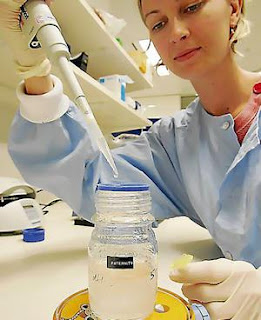Couples with fertility problems have been using donor sperm since the 1930s, although the pioneering doctors who first used the technique met with considersble hostility from both the medical profession and the general public. Despite this, the use of donor sperm for male fertility problems became a very common form of treatment. The advent of ICSI (intra-cytoplasmic sperm injection) in the 1990s gave new hope to men who would have had to use donor sperm in the past.
 |
| Different Ways Of Getting Pregnant |
ICSI allows men with impaired fertility to use their own sperm, which are injected right into the eggs in order to fertilize them.
If you are using donated sperm, the insemination can usually be carried out in a normal cycle unless the woman has ovulation problems. ICSI, on the other hand, does involve going through the whole IVF experience with drugs and egg collection, and is more expensive. There are still some male factor fertility problems that cannot be solved by ICSI, and in these eases donor sperm may be the only way ahead. Donor sperm is also used by single women and lesbian couples.
Sperm donors are screened before they are allow to donate, and their sperm is tested for infections such as HIV, before being kept frozen for six months. As with donor eggs, counseling is a vital part of the treatment process if you are using donated sperm, and any potential problems tend to arise when couples haven't had adequate counseling.
'We didn't have any counseling using donor sperm. My husband didn't really want to do it until we decided that was the only way. The consultant sold it to us. He didn't suggest ICSI. He just decided donor sperm would be the best way to handle it and he said he could get donor sperm from a bank which had plenty in stock.' Sonia, 34
There are now shortages of donor sperm and some clinics have long waiting lists for those who will need to use it. Some women have always preferred to use known donors if they can find someone who is willing to donate, and this is an option that others may now want to consider. Using a known donor means a child can know who their biological father is, and may be able to build up a much closer relationship. Some donors want to be actively involved in the child's life, but many don't want any involvement. This is something you need to have discussed and agreed before going ahead. Women who don't have fertility problems sometimes carry out the insemination themselves at home if they are using known donors, but going through a clinic means the sperm will be screened and checked properly, and should maximize your chances of getting pregnant as your cycle will be monitored too.
Having an anonymous donor can cause difficulties for your child as they get older and you need to have considered how they will feel in the future about this if you have the option of using an anonymous donor, and what you will tell them. There are donor-conceived adults who have found it distressing not to be able to trace their genetic fathers, and although it doesn't inevitably cause problems, you do need to be aware of this.
'There are kids who will never be able to have any contact with their donor, and will never know anything about them. I think that's quite hard for the kids. Even if my son never meets his donor, at least we know about him and I've got a picture of him, at least we have a bit of history.' Ellie, 44
Donor embryos
If there are serious problems with both sperm and eggs, some couples may both need to use donor gametes, or to use a donated embryo from another couple. There are fewer embryos donated than either eggs or sperm, and it can involve a long wait. To find out more, you can check out Different Ways Of Getting Pregnant.
